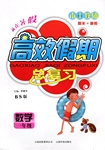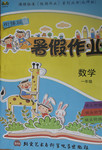题目内容
Today our lives are changing faster than at any time in history. Here we report on three important changes that will have a big impact on our everyday lives in the future.
The cashless society
Cash and bank-notes will disappear almost completely. They will be replaced by smart cards, namely plastic cards: microchip(微芯片)processors(处理器)loaded with some money. When we pay for goods,the shop assistant will put our smart card into a payment terminal(终端)and money will come into his card from our card. When all the money is used up,we will be able to reload it by putting it into a telephone,dialing our bank account and money will be put into the card from the account.
Interactive telephones
Talking computers will play an important part. They will recognize speech, ask us what information we need, look through a database,and put the information into speech.If we want to book a flight or pay a bill by phone, we will interact with a talking computer to do so. Human telephone operators will be used only for more complex operations such as dealing with complaints or solving special problems.
Traffic jams in cities will be reduced because drivers will use electronic route maps to find the quickest route to their destination. Electronic systems will start changing motorists for driving in cities.As soon as motorists have to pay to drive in cities, they will stop using their cars and use public transport instead. Speed control systems will be built into cars. These systems will automatically(自动地)regulate the speed of the car to take account of traffic and weather conditions and prevent accidents. It will be many years before these changes bring results but when they do,there will be a titanic improvement in road safety.
With the development of science and technology, more and more advanced things will be invented or created. Life in the future is undoubtedly different from that at the present.
60. Cash and bank-note will disappear because .
A. they will be out of use sooner or later B. they will be replaced by plastic cards convenient to use
C. we can load money from the bank D. they will be rejected by payment terminals
61. What will you do if the money in your card is used up?
A. Go to the bank to deposit some money. B. Put the card into a telephone and dial the bank account.
C. Buy a new card. D. We don’t know.
62. Which of the following would be the best subtitle for the fourth paragraph?
A. Future cars B. Speed control systems C. Intelligent cars D. Traffic jams
63. Which of the following statements is NOT true?
A. When we buy tickets for flying somewhere else, we can have a talk with the computer.
B. If you make a complaint, you can use human telephone operation.
C. Drivers will stop using their cars and use public transport in order to prevent accidents.
D. The help of electronic route maps will decrease traffic jams.
64. The underlined word “titanic” in Paragraph 4 means .
A. huge and great B. the name of a ship C. slight D. increasing
BBCCA

 暑假作业海燕出版社系列答案
暑假作业海燕出版社系列答案 本土教辅赢在暑假高效假期总复习云南科技出版社系列答案
本土教辅赢在暑假高效假期总复习云南科技出版社系列答案 暑假作业北京艺术与科学电子出版社系列答案
暑假作业北京艺术与科学电子出版社系列答案Today our lives are changing faster than at any time in history. Here we report on three important changes that will have a big impact on our everyday lives in the future.
The cashless society
Cash and bank-notes will disappear almost completely. They will be replaced by smart cards, namely plastic cards: microchip(微芯片)processors(处理器)loaded with some money. When we pay for goods,the shop assistant will put our smart card into a payment terminal(终端)and money will come into his card from our card. When all the money is used up,we will be able to reloadit by putting it into a telephone,dialing our bank account and money will be put into the card from the account.
Interactive telephones
Talking computers will play an important part. They will recognize speech, ask us what information we need, look through a database,and put the information into speech.If we want to book a flight or pay a bill by phone, we will interact with a talking computer to do so. Human telephone operators will be used only for more complex operations such as dealing with complaints or solving special problems.
Traffic jams in cities will be reduced because drivers will use electronic route maps to find the quickest route to their destination. Electronic systems will start changing motorists for driving in cities.As soon as motorists have to pay to drive in cities, they will stop using their cars and use public transport instead. Speed control systems will be built into cars. These systems will automatically(自动地)regulate the speed of the car to take account of traffic and weather conditions and prevent accidents. It will be many years before these changes bring results but when they do,there will be a titanic improvement in road safety.
With the development of science and technology, more and more advanced things will be invented or created. Life in the future is undoubtedly different from that at the present.
【小题1】Cash and bank-note will disappear because .
| A.they will be out of use sooner or later |
| B.they will be replaced by plastic cards convenient to use |
| C.we can load money from the bank |
| D.they will be rejected by payment terminals |
| A.Go to the bank to deposit some money. |
| B.Put the card into a telephone and dial the bank account. |
| C.Buy a new card. |
| D.We don’t know. |
| A.Future cars | B.Speed control systems | C.Intelligent cars | D.Traffic jams |
| A.When we buy tickets for flying somewhere else, we can have a talk with the computer. |
| B.If you make a complaint, you can use human telephone operation. |
| C.Drivers will stop using their cars and use public transport in order to prevent accidents. |
| D.The help of electronic route maps will decrease traffic jams. |
| A.huge and great | B.the name of a ship | C.slight | D.increasing |